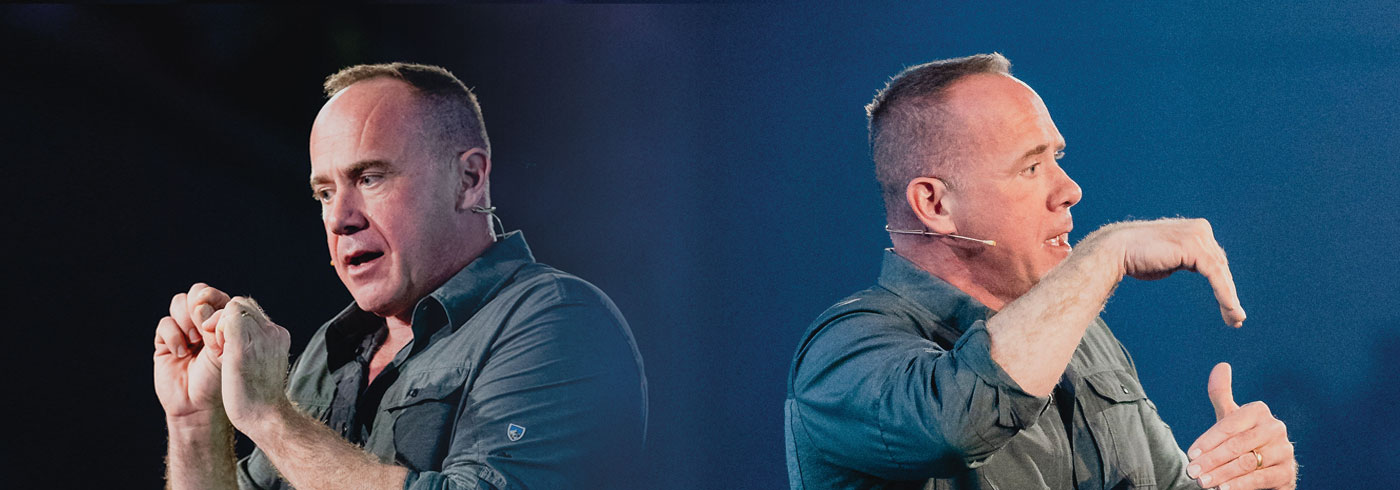From Cessationist to Pentecostal
Discovering the Spirit’s transforming power
I grew up in a non-Pentecostal church and became a pastor in the same denomination. During my first few years of ministry, I viewed cessationism as an ironclad, irrefutable doctrine.
When a parishioner asked what the Bible meant by “prophecy,” I wondered whether a charismatic book, neighbor, or preacher was influencing members of my congregation.
Mechanically but emphatically, I replied, “The gift of prophecy ended with the closing of the biblical canon. The ostensible exercise of prophecy adds to Scripture, which is expressly forbidden in Revelation 22:18.”
One new convert who was eagerly reading through the Bible asked, “What is this ‘speaking in tongues’ thing?”
With a condescending tone, I told him, “The gift of tongues is simply the Bible’s way of describing the need to learn foreign languages before proclaiming the gospel to other cultures.”
I reassured those who asked about demonic activity by saying, “Supernatural phenomena by and large ceased after the Cross.”
As far as I was concerned, altar times were for salvation and church membership, not healing, deliverance, or Spirit baptism.
I thought healing was a temporary gift that inspired belief during apostolic times. And I viewed Spirit baptism merely as the inner change taking place at conversion.
Consequently, my Christian life was tame, predictable, and slightly boring.
Two dynamics led me out of cessationism — and eventually into Pentecostalism.
The first, ironically, was the teaching of notable cessationist preachers. I admired the focus these teachers had on the authority of Scripture. Their influence helped me develop a commitment to God’s Word that I hold to this day.
Nevertheless, I sensed a false syllogism in cessationist teaching. The major premise is that pneumatology must derive from Scripture. Meanwhile, the minor premise holds that the Spirit’s supernatural work ceased during the first century. From those points, cessationists conclude that spiritual gifts are not for today.
Of course, there is a logical breakdown between the premises. The Bible never indicates the supernatural work of the Holy Spirit ceased.
Cessationist teachers offered a number of unhelpful answers rooted in Church history and subjective experience, but no compelling biblical evidence.
The second dynamic that ushered me out of cessationism and into Pentecostalism was simply reading the Bible for myself.
I sat down and read the entire Book of Acts in one sitting, paying special attention to how
the Acts 2 church compared to my church.
My questioning of cessationism took place at about the same time I was experiencing some turbulence in my pastorate. I was facing plateauing conversions, churchwide lethargy, and a deacon board that wanted me to disinvite Black attenders simply because of their race.
During this stressful season, I sat down and read the entire Book of Acts in one sitting, paying special attention to how the Acts 2 church compared to my church.
The differences were stark. Despite my efforts, few were coming to Christ in my church. Yet the apostle Peter preached a brief sermon without illustrations, PowerPoint, or skits, and 3,000 people were saved.
My church was boring, while the electricity in the Acts 2 church practically leapt off the pages.
Our church’s racial divisions did not reflect the diverse and harmonious worship recorded in Acts 2:5–11, or the unity and generosity evident in verses 42–47.
What was the difference between these two churches? The answer was obvious: the Person and work of the Holy Spirit.
My questioning of cessationism and study of Acts resulted in a hunger to experience Christ, rather than simply knowing about Him.
After several months of seeking a deeper encounter with the Lord, I turned on some worship music one day, knelt in my church study, and raised my hands in praise — something I had never done before.
In that moment, I experienced the presence of Christ, mediated by the Holy Spirit, in a profound way.
My English language simply could not articulate the adoration I felt for God, and I found myself praising Him with Spirit-enabled utterances.
Although my church’s situation didn’t immediately change, I changed. I continued to pastor other non-Pentecostal churches, not flaunting my Pentecostalism, but also not hiding it.
My prayer life intensified, both privately and publicly. I lingered in my prayer closet for hours at a time, praying in the Spirit.
Without knowing exactly how to do it, I began laying my hands on the sick and oppressed, praying for healing and deliverance. I witnessed to others openly and boldly, even sharing prophetic messages the Lord placed on my heart.
My congregation sensed a difference, as I preached with an intensity, power, and anointing I had not known before.
I loved my church, but I also felt a growing desire to align with a Pentecostal denomination. After praying for guidance, I signed up for coursework and took the first steps toward seeking credentials with the Assemblies of God.
Today, I am the teaching pastor at Cross Assembly of God in Raleigh, North Carolina, where I have served for more than two decades.
My testimony is not uncommon. Over the years, a number of cessationist pastors have confided in me their hunger for a supernatural encounter with the Holy Spirit. And some are breaking free from the hegemony of cessationism.
I pray more leaders will experience the power, freedom, excitement, and transformation that comes with accepting all of Scripture, including the teaching on the Person and work of the Holy Spirit.
This article appears in the Spring 2025 issue of Influence magazine.
Influence Magazine & The Healthy Church Network
© 2025 Assemblies of God

